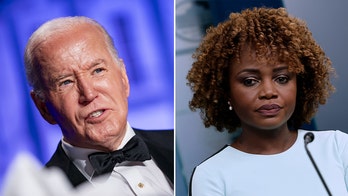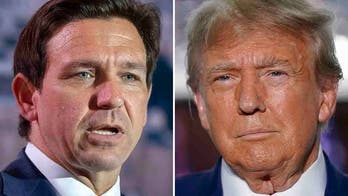The Supreme Court took no action Tuesday on a controversial appeal asking the justices to keep under wraps classified photographs of War on Terror detainees that have been likened to the infamous pictures at Abu Ghraib prison.
The court's consideration of the case coincides with congressional efforts to pass a law giving the secretary of defense the authority to exempt the photographs from Freedom of Information Act disclosures. A measure to do that passed a joint conference committee of the House and Senate last week.
The justices were scheduled to discuss the matter in their closed-door meeting Friday but may have been persuaded to postpone judgment by the government, which last week sent a letter to the court asking them not to move on the case.
Solicitor General Elena Kagan's letter advised the court about Congress' "recent and significant legislative developments." Her request was unusual in that she asked the justices to delay consideration of the government's own case. But the letter shows the Obama administration's top priority is keeping the pictures sealed - and that it believes that can be better accomplished by legislative means than court action.
Kagan's letter isn't the first unusual move from the government in this case. Earlier this year, after saying his administration would not appeal to the high court, President Obama reversed course.
"My belief is the publication of these photos would not add any additional benefits to our understanding of what was carried out in the past by a small number of individuals," Obama explained. "The most direct consequence would be to further inflame anti-American opinion and put our troops in greater danger."
The American Civil Liberties Union is leading the legal fight to force open the photographs. The group succeeded last year when a lower appellate court order the government to release 21 pictures showing the allegedly abusive treatment of detainees by American soldiers in Iraq and Afghanistan.
The ACLU asked the justices to ignore the request in Kagan's letter and urged against further review. A denial by the Supreme Court would uphold the lower court ruling.
"That Congress may enact the legislation described in the government's letter does not supply any reason for delay," ACLU attorney Jameel Jaffer wrote.
Last week, congressional sponsors trumpeted their success in getting the legislation passed through conference. "I hope the courts will give deference to the executive and legislative branches who now speak with one voice prohibiting the photos' release," said bill co-sponsor Sen. Lindsey Graham, R-S.C.
It isn't immediately clear when the legislation, which is part of the Homeland Security Appropriations bill, will reach the floor of either chamber for a final vote. Assuming passage and enactment by Obama, the case before the high court will end if the justices don't eventually dispose of it themselves.




